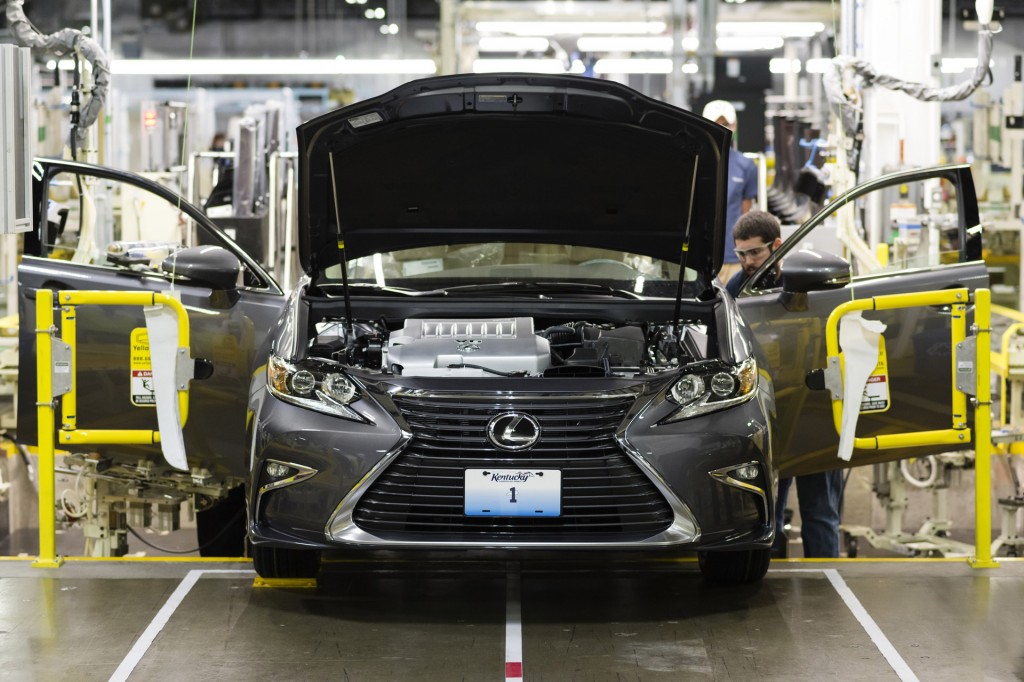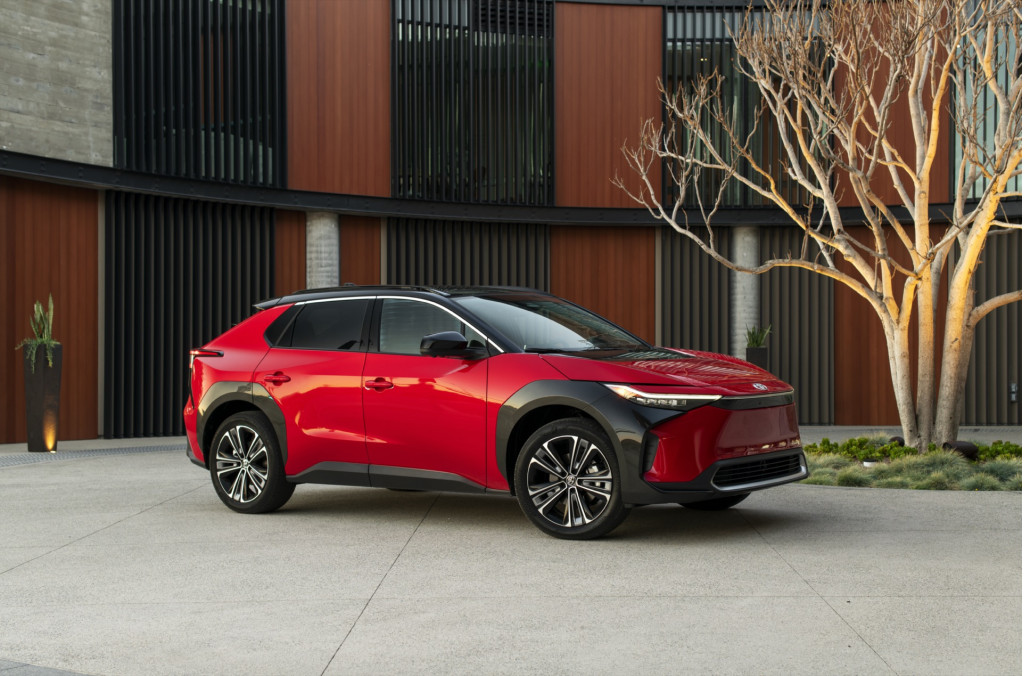Toyota could start building electric cars in Kentucky as soon as 2025 by updating an existing factory, Nikkei reported Tuesday.
The move could allow Toyota vehicles to qualify for the $7,500 federal tax credit under new rules, instituted under the Inflation Reduction Act (IRA), requiring North American assembly of vehicles and battery packs. Toyota previously announced plans to make EV batteries in the U.S. at a new North Carolina factory by 2025.
Located in Georgetown, Kentucky, the factory reportedly eyed for EV production opened in 1988. It currently builds Camry Hybrid and RAV4 Hybrid models for the main Toyota brand, as well as Lexus ES sedans and inline-4 and V-6 engines. Toyota says the factory is currently capable of producing 550,000 vehicles and more than 600,000 engines annually.

2016 Lexus ES production in Georgetown, Kentucky
Per the report, Toyota is also aiming to produce 200,000 EVs in the U.S. from 2026 onward. Along with production in Japan, China, and India, the automaker is aiming to produce one million EVs globally by that time, according to the report.
This would be a rapid change of course for Toyota. As Nikkei notes, over over nine million Toyota vehicles produced in 2022, just 24,000 were EVs. And while Toyota is Japan's largest automaker, in the EV field it's outclassed by Tesla, which sold 1.31 million vehicles globally last year, Nikkei noted.
Toyota's change of CEO does not likely signal a huge shift to more EVs, and as recently as last month the automaker again presented its logic behind emphasizing hybrids. Although Toyota's accelerated battery plans are probably the strongest hint that it's serious about making EVs in the U.S. An under-construction North Carolina battery plant originally slated to make hybrid batteries is now getting a $2.5 billion expansion to accommodate EV battery production.

2023 Toyota bZ4X Limited AWD
A dedicated EV platform was also reportedly given the green light, but it may be five years off. Toyota currently has nothing like Hyundai's E-GMP or Volkswagen's MEB platform that's designed for high-volume production.
That might mean the first EVs assembled in the U.S. would either be conversions of internal-combustion models, or perhaps built on the same e-TNGA platform as the Toyota BZ4X, Subaru Solterra, and Lexus RZ 450e. All three models are heading to the U.S., although some of the accompanying tech, like a steer-by-wire yoke, won't be available at launch.












